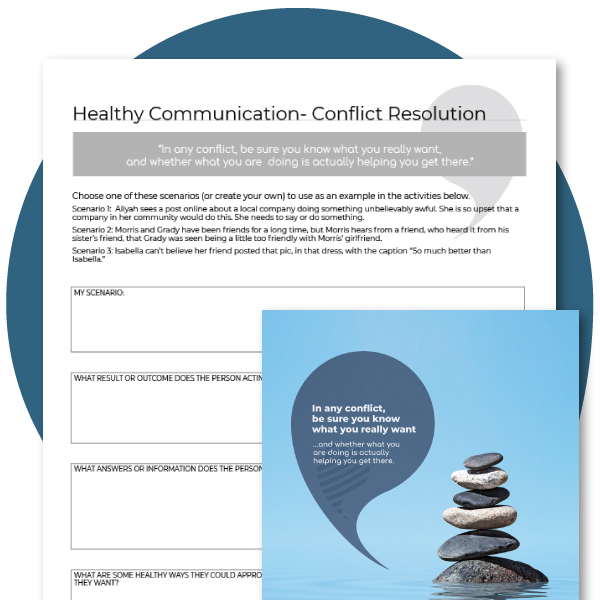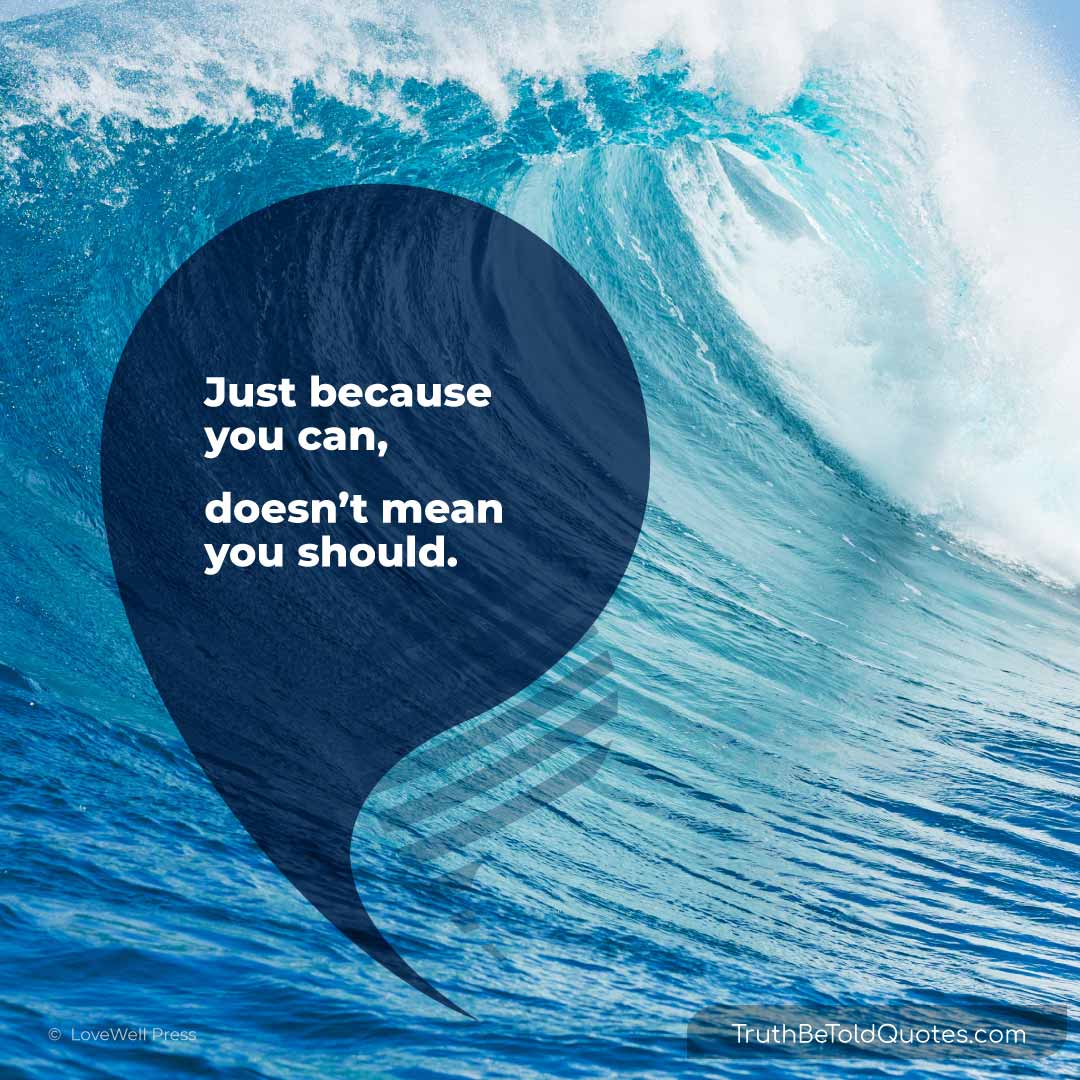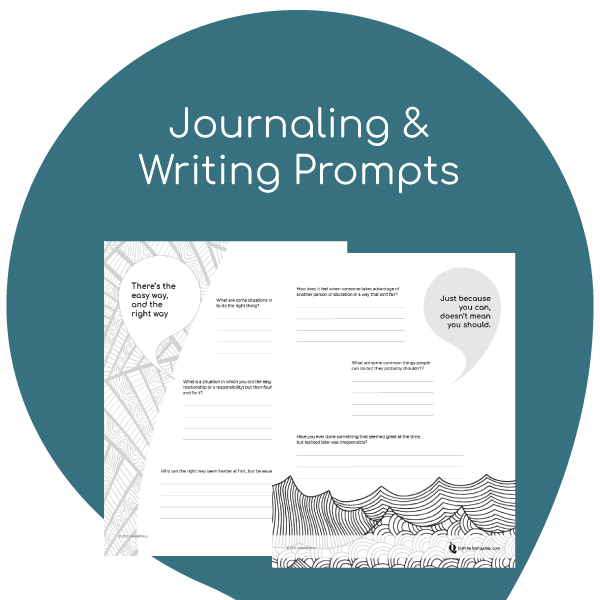
Conflict Resolution Skills Worksheet
High School Social Emotional Learning Activity

Conflict Resolution Skills Worksheet
Objective
Students will improve skills for resolving conflict in healthy ways.
Grade Level
High School, Middle School
Health / Social Emotional Topics
- Positive interpersonal relationships
- Conflict resolution
- Setting boundaries
- Communication skills
Resources
Quotes and Teaching Notes
Worksheets
- Worksheet- Conflict Resolution Activity- PDF is fillable online or printable
Procedures
Discuss the quote "In any conflict, be sure you know what you really want, and whether what you are doing is actually helping you get there." (See full teaching notes for this quote)
1. What are some outcomes you might want in a conflict or argument?
- An apology or an acknowledgement of your feelings or the hurt caused
- An explanation, the truth, to understand why they did it
- A change in behavior- for the other person to stop doing something or to do it differently
- An action to make the situation right, to correct a wrong
2. What are some techniques to be sure you are working toward the outcome you really want?
- Pause-- Take a moment to calm down and think clearly.
- Information-- Get the facts. Is it true?
- Listen-- Listen with the intent to really understand. What is the other person's perspective?
- Focus-- Stay focused on the issue; don't attack the person. Name calling and personal attacks usually cause the other person to get defensive or to stop listening to your perspective.
- Explain-- Use "I feel" statements instead of "You did" statements to help the other person understand why you are upset. Avoid blame and instead explain what you really want as an outcome.
- Stop-- Once you have made your point or the other person has agreed to address it, end the discussion. You may not feel great about things yet, but restating why your upset over and over won't help you both move forward. Focus on the future and giving it a chance to get better.
3. Download the Conflict Resolution worksheet to help students walk through the process of identifying what they want from a conflict and creating healthy steps to find resolution.
Download Worksheet PDF




